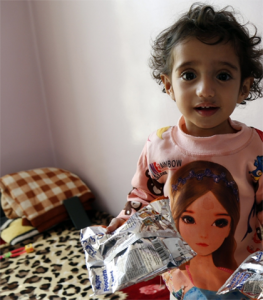Kids most at risk from COVID crisis – UNICEF
Entire generations of children in many parts of the world are at risk of falling into poverty and hopelessness because of the COVID pandemic, the United Nations children’s agency UNICEF has warned.
UNICEF says closed schools, surging poverty, forced marriages and depression mean that after a year of the pandemic, indicators measuring child and adolescent development have all regressed.
 The agency says this is a setback that could herald lasting stigma for entire generations of children across the globe.
The agency says this is a setback that could herald lasting stigma for entire generations of children across the globe.
“The number of children who are hungry, isolated, abused, anxious, living in poverty and forced into marriage has increased,” said Henrietta Fore, UNICEF Executive Director in a statement released exactly a year after the World Health Organisation classified COVID-19 as a pandemic.
“Their access to education, socialisation and essential services including health, nutrition and protection has decreased. The signs that children will bear the scars of the pandemic for years to come are unmistakable,” Ms Fore said.
Ms Fore called for children to be placed “at the heart of recovery efforts,” particularly by “prioritising schools in reopening plans.”
UNICEF has released a raft of worrying data to underpin the looming crisis among children.
It says that while the pandemic has taken a heavy toll on the elderly, children and adolescents under 20 make up 13 per cent of the 71 million coronavirus cases reported in the 107 countries that provided age-specific data.
In developing countries, projections show a 15 per cent increase in child poverty.
Six to seven million more children could suffer from malnourishment in 2020, an increase of 14 per cent which could translate to more than 10,000 additional deaths each month, mainly in sub-Saharan Africa as well as South Asia.
For 168 million students around the world, schools have been closed for nearly a year. A third of those students do not have access to online education.
As a result of the closed schools and deteriorating economic situations, the pandemic could lead to the early marriage of ten million children by 2030.
At least one in seven children or adolescents has spent the majority of the past year under lockdown orders, increasing anxiety, depression and isolation.
UNHCR’s protection Chief Professor Gillian Triggs says that refugee children are among the most vulnerable to the effects of the COVID-19 pandemic.
She says many refugee families have now lost livelihoods that were always precarious and have been thrust into poverty with disastrous and wide-ranging impacts.
“In addition to the mounting risks of violence, abuse, sexual exploitation and trafficking, all of which are consequences of gender inequality, the effects of the pandemic are also proving catastrophic on refugee girls’ education,” Professor Gillian Triggs said.
“Many girls are being forced to drop out of school and into work, sold off or married,” she said.
Aid agencies estimate that an additional 13 million girls are now at risk of forced marriages as a result of the pandemic, child marriages are already being resorted to by some refugee families buckling under debilitating poverty.












